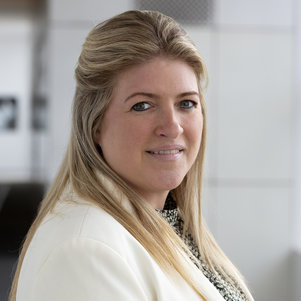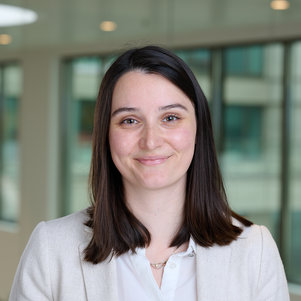Public Risk and Disaster (LD)
Minor code: WM-Mi-244
When global pandemics, earthquakes, and tsunamis strike, they leave a lasting impact on societies around the world. Next to these natural hazards, man-made risks can result in major industrial or nuclear accidents, which remind us of the costs that comes with human progression. The more subtle effects of constantly evolving technologies can also lead to safety and security risks, or impact significant values such as privacy and inclusion. In an era marked by climate change and increasing technological advancement, how do we tackle today’s grand challenges? How do we respond to both man-made and climate-related risks we face in today’s world, ranging from climate change and resulting intensified disasters, to cybercrime, and risks emerging from new technologies such as self-driving cars? Who is responsible for both reducing those risks, and mitigating and responding when something does go wrong? How have various governments and other stakeholders actively worked on preventing and responding to risk and disaster in the past, and how can they do so better?
The world’s population increasingly has to deal with risks related to these ever-evolving challenges. How humanity as a whole prepares for, responds to, and manages these grand challenges is crucial for the world’s future. In this minor, you will explore and unravel these grand challenges, and look for possible ways forward.
Risk and disaster studies cover a broad range of research topics, including technology assessment, ethical analyses, system analyses, multi-actor analyses, risk analyses, vulnerability analyses, and political analyses. In this minor, you will gain knowledge of essential concepts from all of these fields to understand and analyze today’s risks. Unique to this minor is its multidisciplinary approach, where you learn to combine a unique blend of social sciences and engineering concepts to analyze and evaluate current-day risk and disaster-related issues. You will follow courses on disaster studies and technological risks in which you explore academic and theoretical arguments, and apply them to relevant case studies.
To provide this broad spectrum of knowledge to students, TU Delft and Leiden University set up a cooperation. Leiden University primarily contributes with knowledge in disaster studies, focusing on climate change and disaster politics, and intersectional issues. TU Delft contributes in the areas of risk management, system analyses, technology assessment, and ethical analyses, focusing on man-made risks.
Because of the varying backgrounds students enter the minor with, the lecturing team will provide support to students with regard to skills needed to succeed within disciplines they may not yet be familiar with.
Faculty of Technology, Policy and Management
ECs: 30
Start: September
Language: English
Maximum participants: 60
| Non-selection minor: | |
| Selection minor: | |
Criteria: None | |

For whom?
The minor is multidisciplinary in nature, is open to bachelor students from all majors, and is taught by lecturers from both Faculty of Governance & Global Affairs at Leiden University’s The Hague Campus, and from the Faculty of Technology, Policy & Management of TU Delft. The classes take place in The Hague and Delft, respectively.
The maximum number of participants is 140. Priority is given to students from Leiden University, TU Delft, and Erasmus University Rotterdam. Leiden University and TU Delft each have 60 reserved spots, EUR has 20. It is first past the post system, no waiting list is used, and once the maximum amount of participants is reached, no new admissions will be allowed any more. There are 5 places available for students from other Universities. They can apply by contacting the coordinator via prd@fgga.leidenuniv.nl
This minor is not accessible for HBO students.
What will you learn?
The minor PRD gives insight into risk and disaster-related topics which are omnipresent in today’s world, such as incidents due to technological errors, the effects of climate change, and disasters.
-
After completion of the minor, students will be able to:
- Acquire multidisciplinary knowledge and skills to assess, analyze, and manage risks associated with complex socio-technical systems and global challenges
- Understand the interconnectedness of risks and vulnerabilities across borders
- Apply insights from theories on emerging technologies, cybersecurity, disaster studies, climate politics, cascading effects and engineering risk management to real-world cases and policy questions
- Formulate policy advice on some of the most pressing issues in the world today concerning technology, climate change, and disaster
- Develop proficiency in conducting risk assessments, forecasting potential cascading effects, and proposing evidence-informed strategies for risk prevention and risk mitigation.
- Collaborate in multidisciplinary teams
Course overview
The minor consists of 6 courses of 5 ECTS each and takes place during the first semester. The semester is divided into two blocks of eight weeks each. In every block, three courses are taught.
-
Disaster studies (Leiden University, campus The Hague)
Risk management of emerging technologies (Delft University of Technology)
Instability and (In)securities: A case study of crisis (Leiden University, campus The Hague)
-
Climate change as a political challenge: can we prevent disaster? (Leiden University, campus The Hague)
Engineering Risk Management in Organisations (Delft University of Technology)
Researching cascading effects: understanding the ripple effects of cybersecurity (Delft University of Technology)
Registration
For your questions about registration: Admission, registration and enrolment.
Contact 071 – 527 1111 or studielijn@leidenuniv.nl.
Other questions: prd@fgga.leidenuniv.nl.
Contact details

Dr. K.L.L. (Karolien) van Nunen
